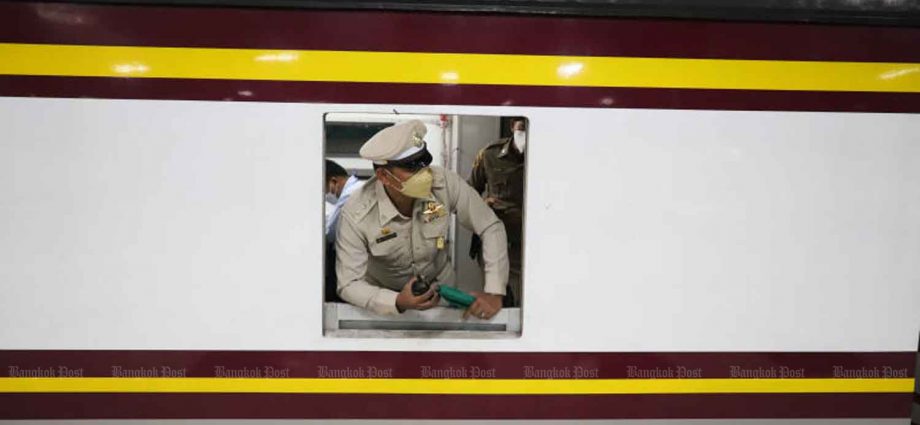Commuters missing their ride as stations fail to coordinate

Some commuters have missed their trains due to confusion and information inadequacy after the State Railway of Thailand (SRT) moved almost half of its long-haul train services from Hua Lamphong station to Krung Thep Aphiwat Central Terminal, formerly known as Bang Sue Grand Station.
The SRT has switched long-haul train services involving 52 special, express and rapid services to the North and Northeast of the country from Hua Lamphong station to Krung Thep Aphiwat Central Terminal in Chatuchak district since Jan 19.
The change has led to the cancellation of several railway operation services at Kan Kheha, Lak Si, Song Hong and Bang Khen stations as the rail route is specifically elevated for SRT’s Red Line electric train which technically no longer suits regular trains.
The train service revamp has led to confusion among commuters as they are told to take the SRT’s Red Line from stations where they bought their ticket to the station where their regular train is to depart as stipulated in the ticket details.
Commuters will be able to get off trains and take a ride on the SRT’s Red Line to and from the Krung Thep Aphiwat Central Terminal Station for free which will last for the rest of the year.
With a lack of information and cooperation between stations, most commuters end up missing their trains, leading to an increase in travel expenses and questions about the quality and reliability of services of SRT.
Saengchan Pinkaew, 57, who had planned to visit her mum in Phichit during Chinese New Year period on Friday, told reporters she did not know services through certain stations had been cancelled.
After asking railway staff at Bang Khen station, she bought a ticket there. The train she needed to take was to depart from Don Muang railway station heading Phichit at 10.30am.
She was told to take SRT’s Red Line to Don Muang railway station to change to a regular train.
Upon reaching the station, she was told to sit around the ticket counter on the second floor and wait for an announcement of the incoming train.
However, there was no such announcement. She talked to staff and learned she missed the train, so she needed to wait for the next train at 2.30pm.
Ms Saengchan said she may have to consider alternative options for travel if the problem remains unsolved.
She assumed the announcement issue may have stemmed from a lack of communication between Bang Khen and Don Muang stations.
Chutima Pumpong, a 54-year-old commuter who also missed a train, said she bought a ticket at Lak Si station to visit her family in Nakhon Sawan.
Her train was scheduled to depart from Don Muang station at 10am.
After she took SRT’s Red Line to the station, it appeared she had missed the train as there was no announcement. Staff claimed an announcement was made but she may not have heard it.
She then had to wait for the next train at 1.45pm.
“I understand the train operation has only recently changed, but it seems there is no cooperation between stations,” she said.
Ms Chutima urged the SRT to continue waivers of the Red Line’s fare for commuters who must take its trains to reach either Don Muang or the Grand stations beyond the one-year term.
Otherwise, people would need to pay an extra fare of about 10-40 baht, while ticket price from Bangkok to Nakhon Sawan cost only 24 baht, she said.
Somsak Prompiangkang, who took his relatives for a ride to Don Muang station, said some people are barely able to access information supplied by government agencies.
He consumes the media regularly but did not know about the train’s switch from Hua Lamphong to Bang Sue Grand Station.
In addition, most elderly folk are accustomed to regular train services and are rarely abreast of technology.
“Actually, the government should launch a trial run, free of charge, to help people get used to the new service. If there are some technical issues, they won’t cost commuters anything,” he said.

